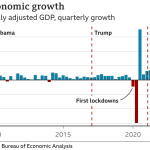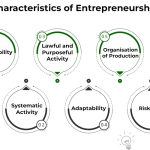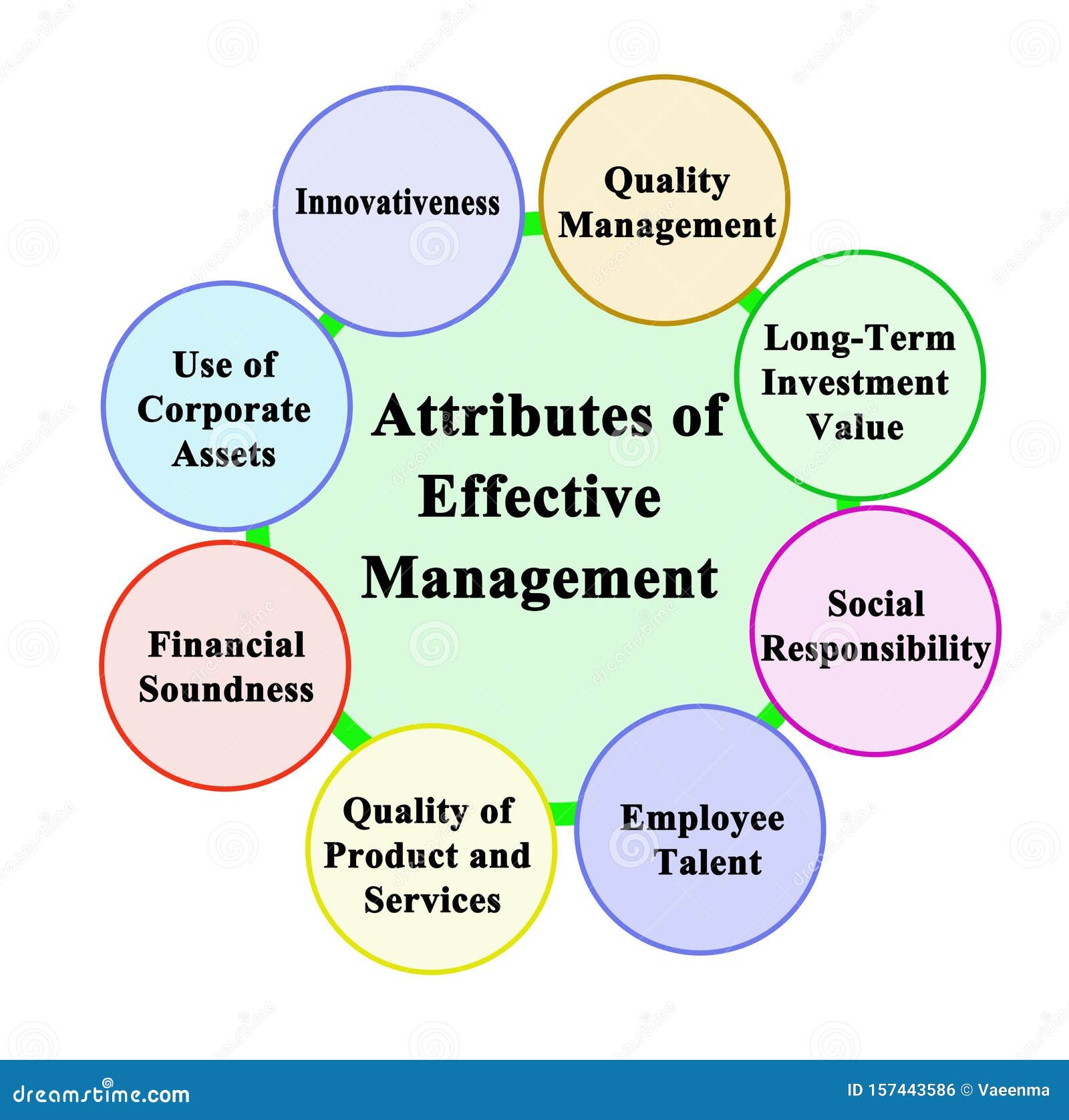Effective management is a pivotal factor in determining an organization’s success, acting as the backbone that helps teams navigate challenges and achieve strategic goals. The qualities of a good manager extend beyond mere personality traits; they include strong leadership skills, effective communication, and the ability to create a psychologically safe environment for their employees. Recent studies have highlighted that managerial effectiveness is not merely rooted in experience or preferences but in specific predictors of management success, such as intelligence and economic decision-making skills. The manager selection process must prioritize these competencies to ensure that the right individuals lead teams effectively. By understanding the complexities of effective management, organizations can cultivate a culture that thrives on collaboration, growth, and performance.
The art of management encompasses a range of strategies and attributes essential for guiding teams toward their objectives. This involves recognizing the key performance indicators that reflect a manager’s ability to influence organizational outcomes positively. Characteristics associated with sound leadership often include the capacity to inspire, motivate, and maintain a cohesive workforce. By focusing on the predictors of management success, such as cognitive abilities and adept resource allocation, organizations can refine their approach to identifying potential leaders. In the competitive landscape of today, enhancing the manager selection process with a scientific framework can lead to marked improvements in team effectiveness and overall business performance.
The Essential Qualities of Effective Management
Effective management emerges from a combination of key qualities that often elude many individuals in managerial roles. A successful manager must possess strong interpersonal skills to establish psychological safety within their team. This means fostering an environment where team members feel secure enough to offer and receive critical feedback without fear of repercussions. In addition to interpersonal skills, effective communication is vital. It’s not just about delivering feedback; it’s about tailoring your approach to fit the individual dynamics of your team. Understanding when to employ different communication styles can significantly influence the engagement and performance of employees.
Analytical skills also play a crucial role in effective management. A good manager must often reassess organizational processes and team functions, determining what methods yield the best results. This analytical approach, coupled with a strategic vision for the organization, is what differentiates an average manager from an exceptional one. Therefore, organizations must understand that identifying and nurturing these qualities in potential managers will lead to higher managerial effectiveness and, ultimately, organizational success.
Predictors of Management Success and Managerial Effectiveness
The recent study on management efficacy highlights two key predictors that far outweigh traditional selection criteria like personality traits or experience. The first predictor is IQ, particularly measured through rigorous tests that assess problem-solving and decision-making capabilities. This quantitative approach to assessing intelligence provides a solid foundation for determining a candidate’s potential effectiveness in a managerial role. However, a more distinguishing predictor is economic decision-making skill, which encapsulates the ability to allocate resources wisely under constraints. Those who excel in this area often embody the qualities of a good manager by adeptly navigating complex challenges.
These two predictors underscore the need for companies to refine their manager selection processes. By relying on quantifiable skills rather than subjective preferences or personality traits, organizations can tap into a broader pool of potential leaders. This shift not only enhances management quality but also aligns the organization’s strategic goals with the capabilities of those at the helm. In an ever-evolving business landscape, understanding these predictors allows companies to cultivate a more effective management team capable of driving success.
The Role of Leadership Skills in Management Effectiveness
Leadership skills are crucial for any manager aiming to enhance their team’s performance and operational efficiency. Effective leaders demonstrate the capacity to inspire and motivate their teams, driving them toward shared goals. By creating a vision and articulating it clearly, managers foster a shared purpose that galvanizes their teams, aligning individual efforts with organizational objectives. This capability not only elevates team morale but also enhances productivity, showcasing the intrinsic link between leadership skills and managerial effectiveness.
Moreover, strong leaders must be flexible, adapting their leadership style to fit the unique needs of their teams. Whether it involves employing a collaborative approach to foster creativity or taking a more directive stance in times of crisis, the ability to pivot between different leadership styles is indicative of a truly effective manager. Thus, organizations should prioritize the development of these leadership skills in their managerial training programs to ensure their leaders can navigate the complexities of their roles effectively.
The Impact of Psychological Safety on Management Success
Psychological safety is a fundamental aspect of effective management that significantly influences team dynamics and overall success. When team members feel secure in voicing their thoughts and concerns, it fosters an environment ripe for innovation and improvement. Managers play a crucial role in creating this sense of safety by demonstrating empathy, actively listening, and providing constructive feedback. Research shows that teams operating in psychologically safe environments are more likely to take risks, share ideas, and ultimately collaborate effectively, increasing overall productivity.
A manager’s ability to cultivate psychological safety can transform team culture, empowering employees to contribute freely without fear of negative repercussions. This not only enhances individual performance but also facilitates team cohesion and collective problem-solving. Thus, incorporating strategies that promote psychological safety should be a priority for organizations aiming to enhance their management effectiveness, as this foundation can lead to higher engagement and better performance outcomes.
Understanding the Manager Selection Process
The manager selection process remains a critical area for organizations striving for effective leadership. Traditional methods often focus on subjective traits like charisma, age, or tenure, which do not necessarily correlate with managerial success. However, studies suggest that a more systematic approach based on measurable skills—such as cognitive ability and economic decision-making—can yield better outcomes. By integrating these quantifiable measures into the selection process, companies can identify candidates with a genuine potential for leadership effectiveness.
Moreover, organizations should consider implementing structured interviews and assessment centers during the selection process to evaluate candidates’ management capabilities more rigorously. This method allows for real-time observation of managerial skills in action, providing invaluable insights into how potential leaders may handle various scenarios. By refining the selection process to focus on candidates who demonstrate proven indicators of management success, organizations can build a strong, effective leadership cadre.
The Importance of Communication Skills in Management
Effective communication skills are an essential component of successful management. Managers must be adept at conveying information clearly and persuasively to ensure that their teams understand their roles, tasks, and the broader organizational objectives. This clarity promotes alignment and allows team members to contribute effectively toward common goals. Additionally, managers should master the art of active listening, which fosters an inclusive atmosphere where employees feel valued and understood. By cultivating open lines of communication, managers can enhance team cohesion and productivity.
Furthermore, communication within teams must be adaptable to different contexts and individuals. Managers should recognize that not all team members absorb information similarly and adjust their communication styles accordingly. This adaptability can lead to more effective feedback and a stronger rapport between managers and their teams, ultimately contributing to a more harmonious workplace environment. Therefore, investing in communication training for potential managers is crucial to developing effective leaders capable of navigating complex interpersonal dynamics.
The Role of Analytical Skills in Managerial Efficiency
Analytical skills are pivotal for any manager striving to achieve optimal organizational efficiency. Managers regularly face multifaceted problems that require not only decisive action but also careful analysis and strategic thought. An effective manager must evaluate data, discern patterns, and make informed decisions based on the facts at hand. Possessing strong analytical skills equips managers to identify challenges early and adjust strategies proactively, ensuring their teams remain productive and responsive to changes in the business environment.
Additionally, analytical thinking extends to understanding team dynamics and workforce capabilities. By assessing the strengths and weaknesses within their team, managers can reallocate resources effectively and ensure that each employee’s skills are utilized to their maximum potential. This level of insight is crucial for fostering high performance and maintaining a competitive edge in any industry. Therefore, organizations should emphasize the development of analytical skills in their management training programs to enhance overall effectiveness and drive success.
Challenges in Identifying Good Managers
Identifying good managers is fraught with challenges, as evidenced by various studies indicating that conventional hiring metrics often fall short. Many organizations have relied heavily on subjective assessments of personality traits or leadership preferences, which can obscure actual managerial effectiveness. As research has shown, individuals with a strong desire to lead do not necessarily translate that ambition into successful management. This calls for a paradigm shift in how organizations identify and promote managerial talent.
To overcome these challenges, organizations should prioritize a more scientific approach to manager selection. By utilizing evidence-based assessments that focus on relevant competencies, such as problem-solving abilities and economic decision-making, companies can increase the likelihood of hiring managers who demonstrate true effectiveness. Moreover, regular reviews of managerial performance metrics can help organizations refine their selection processes over time, ensuring that they consistently identify candidates who align with the qualities of outstanding management.
Strategies for Developing Future Managers
Developing future managers is essential for ensuring organizational sustainability and success. Companies can adopt a range of strategies to cultivate managerial talent from within their ranks. One effective approach involves implementing mentorship programs that pair aspiring leaders with experienced managers. This relationship can facilitate knowledge transfer and skill development, equipping potential managers with the insights and experience needed to navigate complex organizational challenges.
Additionally, organizations should invest in leadership training programs that focus on the specific skills necessary for effective management. Workshops and simulations that emphasize communication, decision-making, and emotional intelligence are invaluable in preparing individuals for managerial roles. By fostering an environment that promotes continuous learning and growth, organizations can build a robust pipeline of competent managers who are prepared to lead their teams to success.
Frequently Asked Questions
What are the key qualities of a good manager that contribute to effective management?
Effective management relies on several key qualities of a good manager, including strong communication skills, the ability to create psychological safety for team members, and a mix of interpersonal and analytical skills. Good managers connect well with their teams, encourage feedback, and possess a strategic vision that aligns with the organization’s goals.
How does managerial effectiveness relate to leadership skills in the workplace?
Managerial effectiveness is closely tied to leadership skills, as effective managers must lead their teams through challenges while fostering collaboration and motivation. Skills such as problem-solving, resource allocation, and effective communication are crucial in demonstrating leadership and ensuring team success.
What are the best predictors of management success according to recent studies in effective management?
Recent studies indicate that the best predictors of management success are not personality traits or experience, but rather cognitive abilities such as IQ and specific skills like economic decision-making. These factors help to determine a manager’s ability to allocate resources effectively and lead their teams to successful outcomes.
In what ways can organizations improve their manager selection process to ensure effective management?
To improve the manager selection process, organizations should focus on objective measures such as cognitive assessments and decision-making skills rather than relying on subjective traits like personality or preferences for leadership. This analytical approach can help identify candidates who possess the qualities necessary for effective management.
Why is it challenging to find good managers, and how does this impact effective management?
Finding good managers is challenging because the qualities that contribute to effective management are often rare and diverse. Many managers do not exhibit the ideal mix of interpersonal and analytical skills needed to lead effectively. This difficulty in selection can hinder overall organizational performance, as ineffective management can lead to poor team dynamics and resource allocation.
What role do leadership skills play in the predictors of effective management?
Leadership skills are a vital component in the predictors of effective management, as they encompass the abilities needed to inspire and guide a team. Effective leaders are skilled at communication, building relationships, and making strategic decisions that directly impact their team’s performance and motivation.
Can personality traits predict managerial effectiveness in the context of effective management?
No, personality traits alone do not effectively predict managerial effectiveness. Research shows that qualities such as cognitive abilities and decision-making skills are more reliable indicators of how well a manager will perform in their role compared to traits like age or personality.
How does psychological safety contribute to effective management in organizations?
Psychological safety is fundamental for effective management as it allows team members to feel secure when providing feedback and sharing ideas without fear of negative consequences. Good managers foster this environment, leading to higher engagement, creativity, and overall team performance.
| Key Points | Details |
|---|---|
| Importance of Good Management | Good management is essential for organizations to navigate complex strategic challenges and allocate resources effectively. |
| Challenges in Identifying Good Managers | Traditional criteria like age, experience, and personality traits do not reliably predict managerial effectiveness. |
| Key Predictors of Managerial Effectiveness | IQ and economic decision-making skills, rather than traditional traits, are vital indicators. |
| Surprising Findings on Leadership Desire | Individuals who want to lead often perform worse than randomly assigned managers due to overconfidence. |
| Assessment Methodology | Utilizing lab settings to measure leadership performance and its impact on team success. |
Summary
Effective management is critical for the success of any organization. The recent study highlights the need for organizations to prioritize scientific and analytical methods in selecting managers. By focusing on IQ and the ability to make economic decisions rather than traditional metrics like personality and preference, companies can identify capable leaders who can navigate complex challenges and maximize team effectiveness. This evidence-based approach not only ensures better managerial appointments but also drives overall productivity and organizational success.









